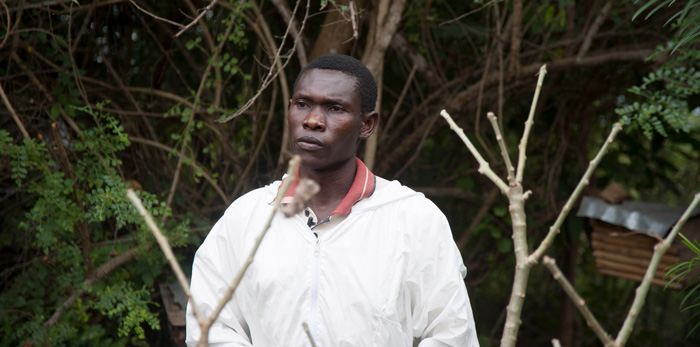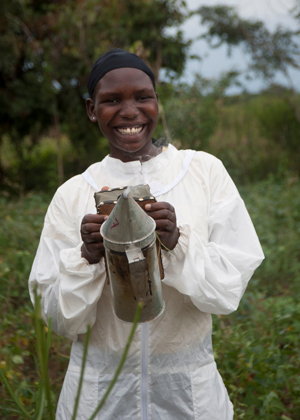New short video from Self Help Africa that looks at how village beekeepers in Uganda are making a business out of apiculture.
Local groups in a number of districts have been supported with training in swarm management, beehive manufacture, honey harvesting and in the production and sale of their honey.
The activity is also linked to efforts to promote the preservation of trees and the natural environment, as trees and other vegetation provides both shelter, and forage crops for their bees, who also act as important germinators of other food crops.
It is a profitable and worthwhile enterprise too, as the featured village beekeepers will tell you:
Beekeeping sisters
Sisters Betty and Patricia Adele from Bukadea in Central Uganda are using beekeeping to fund their education.
The women, who joined Bohopa Beekeepers Association when still in their teens,
are amongst 40 villagers in their parish who are being supported with apiculture both as an income generating enterprise, and as a means of encouraging tree planting and natural resource management in their locality.
Betty (19) now has 15 hives, while Patricia, who is 20, has seven. Both sisters use the profits from the sale of their honey to fund their education at the community college in nearby Kayunga town.
Members of Bohopa Beekeepers have received artisan training in the construction of replica Kenya top-bar hives, which they construct from local wood and cane, and seal with animal dung.They have also been trained in swarm management, honey harvesting and processing, and have received equipment, including separators, bee suits, smokers, storage vats and other equipment to support them in the activity.
Bohopa members keep more than 200 hives in a fenced-in shaded close to the home of their group chairman, and they use his home also to hold meetings, store equipment, and as a depot where honey can be transferred into jars for sale in local markets.
Members have planted hundreds of mixed trees across nearby land, and have also grown a field of sunflowers adjacent to the plot, to ensure that their hives have adequate opportunity to forage in the locality.
‘I started with just a single hive that my parents gave me two years ago,’ says Betty Adele. ‘I enjoyed working alongside my parents and keeping bees myself. When I sold my first jars of honey last year I used the money to buy more hives. I now have 15,’ she said.
At the end of last year Betty harvested 50 litres of honey from her hives, and sold this to a local trader for €2.80 a litre. She used the money to invest in some of her own equipment, and invested the remainder in clothing and books that she needed for school.


